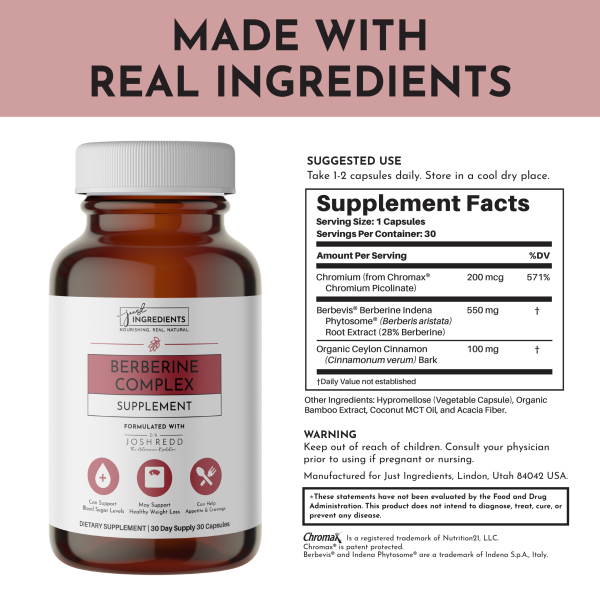Time to read 8 min

Depression is a complex and individual experience. For years, I sought answers from doctors, trying to understand what was contributing to my depression. While there’s no single cause or solution, I’ve learned that there are common factors that can play a role in mental health struggles. It wasn’t until I discovered these factors that I was able to find a clearer path to healing. I’m sharing these insights in the hope that they might help you or someone you love.
In this post, I’ll be talking in detail about four potential contributing factors to depression:

Plus, I’ll share 17 other possible contributing factors at the end of this article.
Disclaimer: This content is intended for informational purposes only and is not medical advice. If you or someone you know is experiencing depression or any mental health concerns, please seek guidance from a healthcare provider.
Depression & Diet: How What You Eat May Affect Your Mental Health
What we eat can have a big impact on our mood and mental health. The connection between our brain and gut is really strong, and the nutrients we consume can affect everything from hormone balance to stress regulation.

Things to Minimize or Avoid:
-
Aspartame: Some studies suggest this artificial sweetener may increase oxidative stress and inflammation in the brain—factors that could influence mood and cognitive function. Source
-
Inflammatory Oils (Soybean, Canola, Cottonseed, Vegetable Oil, etc.): These oils may contribute to an imbalanced omega-6 to omega-3 ratio, a factor linked to chronic inflammation. Chronic inflammation has been identified as a potential marker associated with depressive symptoms. Source
-
High Fructose Corn Syrup: Research indicates this sweetener may interfere with tryptophan metabolism, potentially affecting the body’s ability to produce serotonin, a neurotransmitter that helps regulate mood. Source
-
Sugar: High sugar intake has been associated with inflammation, blood sugar imbalances, and gut microbiota disruption—factors that may play a role in mood regulation and depressive symptoms. Source
Depression & Lifestyle Factors: How Daily Habits Can Affect Your Mental Health
In addition to diet, lifestyle factors are an important piece of the puzzle. Simple changes to daily habits can make a significant difference in how we feel. Many of these strategies are free and easy to implement.
A meta-review shows that walking just 7,000 steps a day can reduce the risk of depression by 31%. Even smaller increases—like 1,000 extra steps—can offer benefits. Source
Other Daily Habits to Support Mental Health
-
Get Sunlight: Spending just 10–15 minutes in the morning sunlight can help regulate your circadian rhythm and boost serotonin, the body’s feel-good hormone.
-
Prioritize Quality Sleep: Aim for 7–9 hours of sleep each night. Sleep allows the brain to detoxify and the nervous system to reset. Here are some tips on getting better sleep.
-
Eat More Fiber: A healthy gut is connected to a healthy brain. Fiber-rich foods help feed good bacteria that produce mood-boosting neurotransmitters.
-
Cold Exposure & Sauna: These practices may help support healthy inflammation levels, promote nervous system balance, and elevate your mood.
-
Minimize Toxic Load: Everyday products can contain chemicals that disrupt the body’s natural systems, potentially impacting mental health. For tips on things you could try removing from your diet and beauty products, check out this blog post.
-
Increase Protein Intake: Protein provides the amino acids needed to build neurotransmitters. Aim for about 0.7–1 gram of protein per kilogram of body weight daily, depending on your activity level.
-
Exercise Daily: Physical activity boosts the release of endorphins—your body’s natural mood elevators.
-
Red Light Therapy: RLT may help regulate neurotransmitter levels, support mitochondrial health, and promote neuroplasticity—the brain’s ability to adapt and grow.
Small changes to daily habits can support healing over time, even though they are not quick fixes.

Depression & Blood Glucose: The Impact of Blood Sugar on Mood
Blood sugar fluctuations can affect mood and mental well-being. Research has shown that people with inconsistent blood glucose levels often experience increased feelings of anxiety, sadness, and nervousness.
How Blood Sugar and Mood are Linked:
-
Blood Sugar & Mood Swings: Fluctuating blood sugar levels can have a significant effect on emotional stability. When blood sugar dips or spikes, it can lead to feelings of irritability or sadness. Source
-
Insulin Resistance & Depression: Insulin resistance, which occurs when the body is no longer able to respond properly to insulin, not only impacts physical health but has also been linked to a higher risk of depression. Source
-
Hormonal Imbalances & Mental Health: Hormonal imbalances, such as those affecting thyroid hormones, can worsen symptoms of depression. Research shows that imbalances in thyroid hormones and blood glucose are often seen in those with major depressive disorder (MDD), particularly those with suicidal behaviors. Source
How Berberine May Help
Berberine, a compound found in several plants, has been studied for its potential to support healthy blood sugar levels and improve insulin sensitivity. Some research suggests that it may also support mood by influencing neurotransmitters and promoting a healthy response in the brain. Additionally, berberine has shown promise in supporting hormonal balance in individuals with PCOS—a condition often linked to mood challenges. Source
If you’re experiencing ongoing fatigue, mood imbalances, or stress-related symptoms, evaluating your lifestyle and nutrient intake may be helpful. Consider speaking with a qualified healthcare provider to explore root causes and build a personalized support plan. For a place to start, in our free Depression Guide, we include a list of tests you could ask your doctor for if you need a place to get started.

Other Possible Contributing Factors
Depression is incredibly complex, and while we’ve highlighted four key contributors, many other factors might play a role in mental health struggles. Everyone’s situation is unique, and multiple health areas can sometimes affect how you feel. Here are additional factors to consider.
-
Methylation issues (affecting B vitamin absorption)
-
Thyroid dysfunction
-
Hormonal imbalances, including estrogen dominance
-
Low cholesterol levels (which can affect hormone production and brain health)
-
Mitochondrial dysfunction (affecting energy production at the cellular level)
-
Amino acid deficiencies (which are precursors to neurotransmitters like serotonin and dopamine)
-
Poor nutrient absorption due to digestive issues or food intolerances
-
Gut dysbiosis or problems with the gut lining
-
Heavy metal toxicity
-
Genetic mutations, such as the MTHFR gene variant
-
Chronic infections, including mold exposure, parasites, or Candida overgrowth
-
Autoimmune diseases that may affect mood and inflammation
-
Detoxification challenges, where the liver or other pathways need extra support
-
Unresolved trauma or trapped emotions
-
Spiritual disconnection or lack of purpose
-
Pharmaceutical side effects
-
Lack of community, connection, or communication
Understanding the different factors that can contribute to depression can be empowering. While there’s not just one solution, being aware of these things can help you make small, meaningful changes that may have a positive impact on mental health. If you or someone you love is struggling with depression, consider talking to a healthcare provider who can help explore these areas further and offer support.

